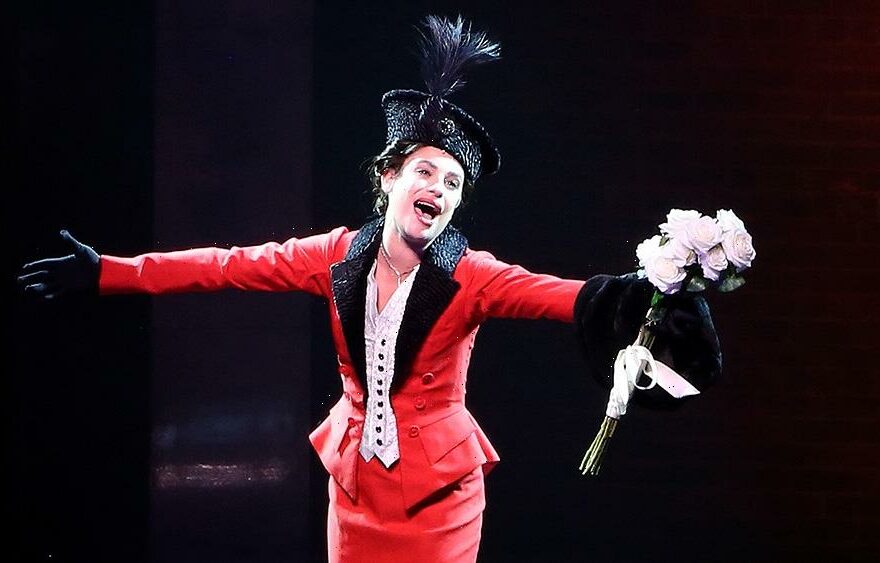It’s time to retire those “Glee” covers of “Don’t Rain on My Parade” and “People.” Lea Michele and the company of Broadway’s “Funny Girl” revival have recorded a cast album, which will be available on Friday, Nov. 18.
Michele hinted at the announcement during the curtain call of Wednesday evening’s performance. Her words were shared through the production’s Instagram account.
“We have a little bit of a secret that we wanted to let you all in on and — Oh! We’re live on Instagram. We are all so so so proud to announce that we are going to be releasing our original cast Broadway recording of ‘Funny Girl,’” Michele said. “We worked so hard in the studio to make such an incredible album that I have heard and, as the biggest ‘Funny Girl’ fan, I am so proud of it.”
A post shared by Lea Michele (@leamichele)
Though Beanie Feldstein originated the role of Fanny Brice in the Broadway revival, she and fellow cast member never recorded the show’s signature tracks, which include “I’m the Greatest Star” and “Who Are You Now.”
Along with Michele, the soundtrack will feature vocals from Ramin Karimloo as Nicky Arnstein, Tovah Feldshuh as Fanny Brice’s mom Rosie and Jared Grimes as Eddie Ryan.
“Glee” fans may have heard Michele channel Barbra Streisand, the original Fanny Brice, as she performed nearly every song from “Funny Girl” during the long-running TV series. But it’s been years since she played the aggressively Type-A theater nerd Rachel Berry. For those who haven’t been able to catch the revival in New York City’s August Wilson Theatre, it’s the next-best way to listen to Michele’s matured crystalline soprano.
Take two on “Funny Girl” (Feldstein, along with “Glee” alum Jane Lynch departed the show in August) has generated raves. In Variety’s review of the recasted revival, Frank Rizzo was particularly complimentary to Michele’s vocal prowess.
“What serves the show most is her singing, making a triumph of the first act musical trifecta of “I’m the Greatest Star,” “People” and “Don’t Rain on My Parade,” with plenty of power notes left over to elevate the rest of the Jule Styne-Bob Merrill score,” he wrote. “Though hardly re-conceiving the songs, Michele is able to distance herself enough from Streisand’s phrasing to take ownership — or at least to become a savvy caretaker — of the material.”
Read More About:
Source: Read Full Article
